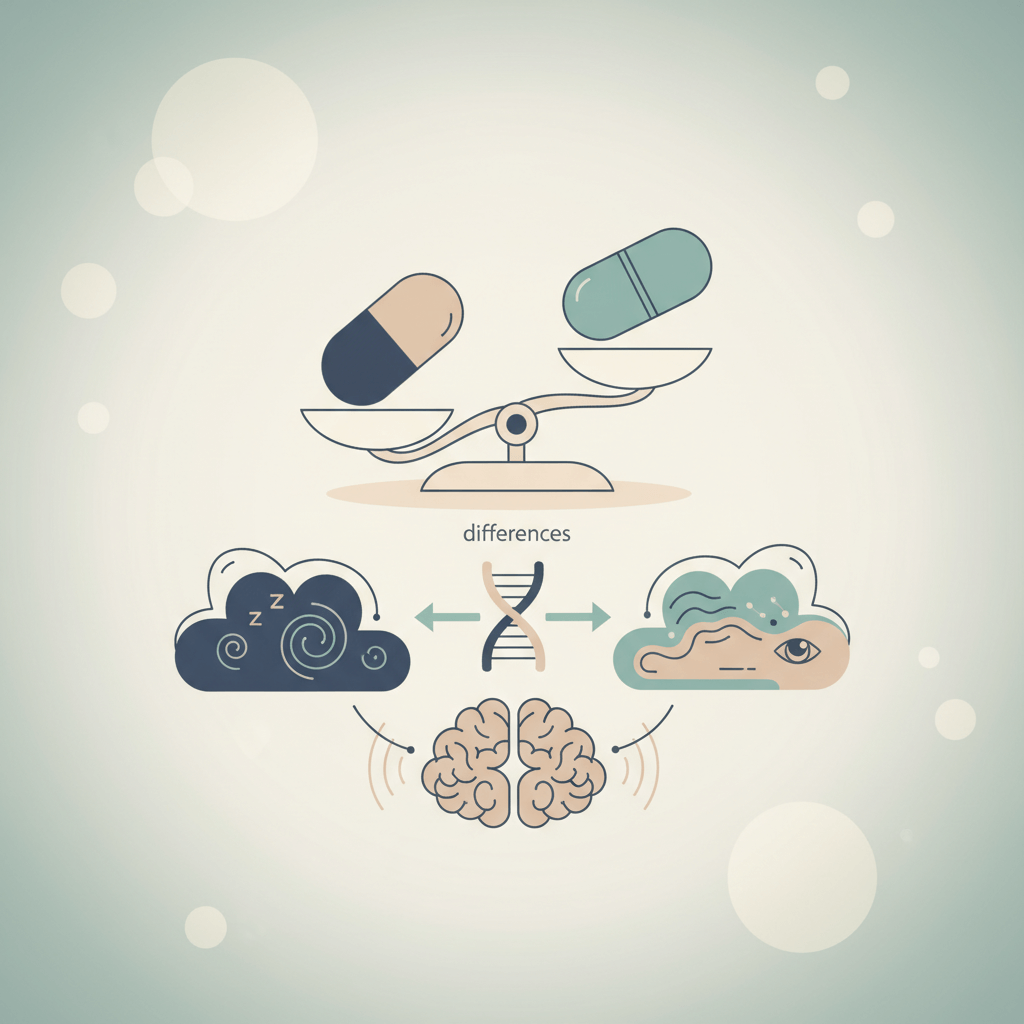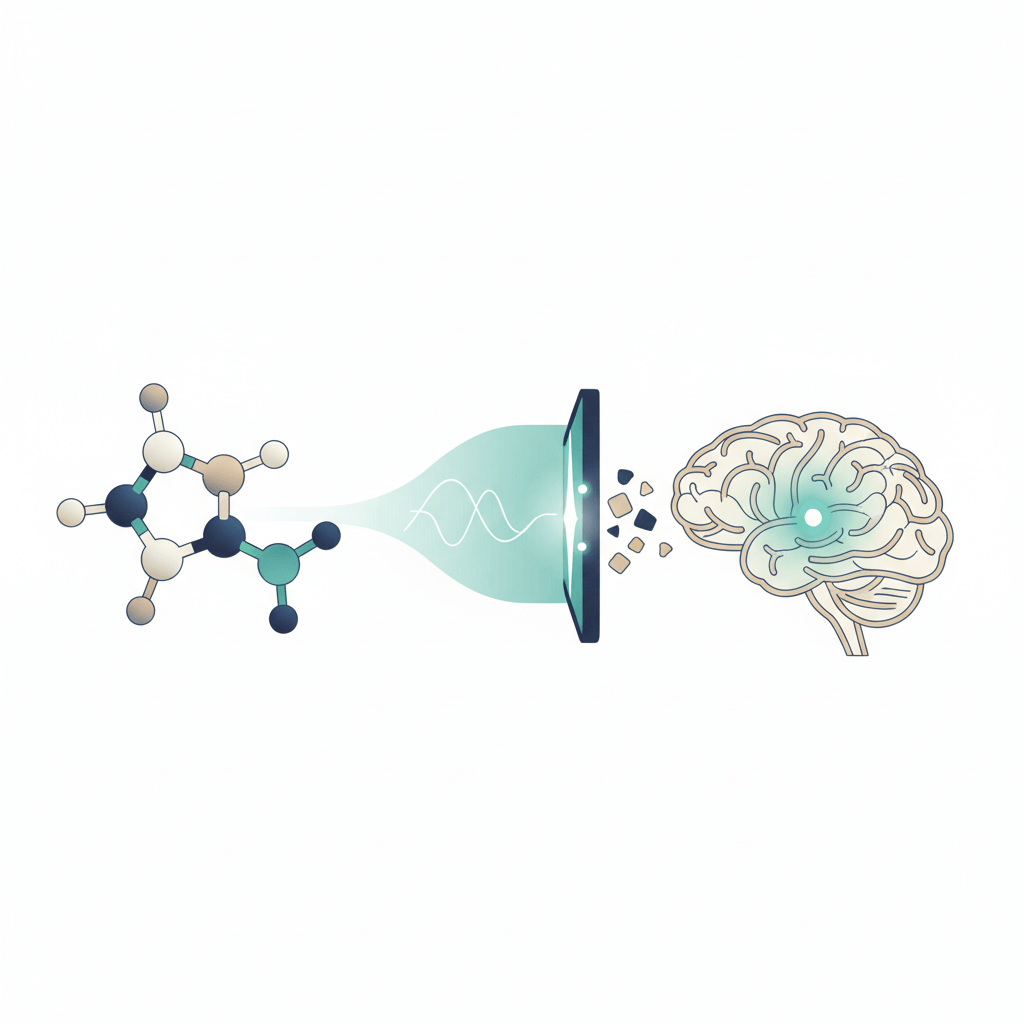Understanding Alcohol's Effects
Before diving into the time it takes for alcohol to take effect, it's important to understand how alcohol works in the body and the factors that influence its absorption.
How Does Alcohol Work in the Body?
When alcohol is consumed, it enters the bloodstream through the stomach and small intestine. From there, it is carried throughout the body, including the brain, where it exerts its effects. Alcohol is a depressant that affects the central nervous system, resulting in various physical and psychological changes.

Once in the bloodstream, alcohol begins to interfere with the normal functioning of neurotransmitters, which are chemical messengers that transmit signals between nerve cells. It primarily enhances the effects of the inhibitory neurotransmitter known as gamma-aminobutyric acid (GABA), leading to a slowdown in brain activity and producing the well-known effects of alcohol consumption.
Factors Affecting Alcohol Absorption
Several factors can influence the absorption of alcohol in the body, ultimately impacting how quickly and intensely its effects are felt.
- Rate of Consumption: The speed at which alcohol is consumed plays a role in its absorption. Drinking alcohol quickly can cause a rapid increase in blood alcohol concentration (BAC), leading to a more immediate and pronounced effect.
- Alcohol Content: The alcohol content of the beverage consumed affects its absorption. Beverages with higher alcohol concentrations, such as spirits, are absorbed more rapidly than those with lower concentrations, such as beer or wine.
- Food Intake: Consuming alcohol on an empty stomach allows for faster absorption since there are no other substances in the digestive system to slow down the process. Eating food before or while drinking can slow the rate of alcohol absorption, as the food acts as a buffer and slows down the passage of alcohol into the bloodstream.
- Metabolism: The rate at which the body metabolizes alcohol varies among individuals. Factors such as age, genetics, liver health, and certain medications can affect the body's ability to process alcohol efficiently.
- Body Weight and Composition: Body weight and composition can influence alcohol absorption. In general, individuals with a higher body weight tend to have a larger volume of distribution, meaning that alcohol is more diluted and may have a less pronounced effect. However, body composition, including the percentage of body fat and muscle mass, can also impact alcohol absorption.
Understanding how alcohol works in the body and the factors that affect its absorption is essential for comprehending the time it takes for alcohol to take effect. In the following sections, we will delve deeper into the journey of alcohol through the body and the effects it produces at different BAC levels.
Absorption of Alcohol
To understand how long it takes for alcohol to take effect, it's important to explore the process of alcohol absorption in the body. The journey of alcohol through the body and the speed of absorption play a significant role in determining when the effects of alcohol will be felt.
Alcohol's Journey through the Body
After consumption, alcohol enters the body through the mouth and travels down the esophagus into the stomach. In the stomach, a small portion of alcohol is immediately absorbed into the bloodstream. However, the majority of alcohol absorption occurs in the small intestine.
Once in the small intestine, alcohol rapidly passes through the intestinal walls and enters the bloodstream. From there, it is distributed throughout the body, including the brain, where it exerts its effects. The process of alcohol absorption is influenced by various factors, including the concentration of alcohol consumed and the rate of consumption.
Speed of Absorption
The speed at which alcohol is absorbed into the bloodstream can vary depending on several factors. Generally, the higher the alcohol concentration, the faster the absorption. However, the presence of food in the stomach can slow down the absorption process, as it acts as a buffer and delays the passage of alcohol into the small intestine.
Other factors that can affect the speed of alcohol absorption include individual differences in metabolism, body weight, and composition.
It's important to note that alcohol enters the bloodstream relatively quickly, with some effects starting to manifest within minutes of consumption. However, the full effects of alcohol, such as impaired judgment, coordination, and reaction times, may take longer to become noticeable.
Understanding the absorption process is essential in determining how long it takes for alcohol to take effect. The effects can vary from person to person based on factors such as body weight, metabolism, and the rate of consumption.
In the next section, we will delve into the concept of blood alcohol concentration (BAC) levels and how they relate to the effects of alcohol.
How Long Does It Take for Alcohol to Kick In?
When it comes to alcohol consumption, many people wonder how long it takes for the effects to kick in. The time it takes for alcohol to take effect can vary depending on several factors, including the individual's blood alcohol concentration (BAC) levels.
Blood Alcohol Concentration (BAC) Levels
Blood alcohol concentration (BAC) is a measure of the amount of alcohol present in a person's bloodstream. BAC levels are typically expressed as a percentage. The higher the BAC, the more pronounced the effects of alcohol on the body.
The table below provides a general guideline of the effects of alcohol at different BAC levels:
BAC Level and Effects
- 0.02-0.03% - Mild relaxation, mood elevation
- 0.04-0.06% - Feeling of warmth, slight impairment of judgment
- 0.06-0.10%Euphoria, decreased inhibitions, impaired coordination0.11-0.15%Significant impairment of motor control and balance0.16-0.20%Severe impairment, potential blackouts0.21%+Loss of consciousness, potential alcohol poisoning
It's important to note that the effects of alcohol can vary from person to person. Factors such as tolerance, body weight, and overall health can influence how an individual reacts to alcohol.
Effects of Alcohol at Different BAC Levels
The effects of alcohol on the body are not only influenced by BAC levels but also by individual tolerance and other factors. Some common effects experienced at different BAC levels include:
- At lower BAC levels (0.02-0.06%), individuals may feel a mild relaxation, increased sociability, and a slight impairment of judgment.
- As the BAC levels rise (0.06-0.15%), individuals may experience a feeling of euphoria, decreased inhibitions, impaired coordination, and slower reaction times.
- At higher BAC levels (0.16% and above), individuals may encounter severe impairment, potential blackouts, and an increased risk of accidents and injuries.
It's important to remember that alcohol affects everyone differently, and excessive alcohol consumption can lead to dangerous situations and long-term health consequences. If you or someone you know is struggling with alcohol addiction, seeking professional help is crucial.
Understanding the effects of alcohol and its impact on the body can help individuals make informed decisions about their alcohol consumption and prioritize their well-being.
Variables Impacting Alcohol's Effects
Various factors can influence how alcohol affects individuals. Understanding these variables can shed light on why different people may experience alcohol's effects differently. Three key factors that impact alcohol's effects are gender differences, body weight and composition, and food intake and drinking habits.
Gender Differences
Gender plays a significant role in how alcohol is processed by the body. Women generally have a lower tolerance for alcohol compared to men due to differences in body composition and metabolism. Women tend to have a higher percentage of body fat and lower levels of alcohol-metabolizing enzymes, which leads to slower alcohol breakdown. As a result, women may experience the effects of alcohol more quickly and intensely.
Body Weight and Composition
Body weight and composition also influence how alcohol is metabolized. Generally, individuals with a higher body weight have a larger volume of distribution, which means that alcohol is more diluted in their body. This can lead to lower blood alcohol concentration levels and a slower onset of alcohol's effects. However, it's important to note that factors such as body fat percentage and muscle mass also play a role. Individuals with a higher percentage of body fat may experience a higher blood alcohol concentration due to the lower water content in fat tissue.
Food Intake and Drinking Habits
Food intake and drinking habits can significantly impact alcohol's effects. Consuming alcohol on an empty stomach can lead to faster absorption and a quicker onset of its effects. This occurs because food helps to slow down alcohol absorption by delaying its entry into the bloodstream. Additionally, chronic heavy drinking can lead to changes in the liver's ability to metabolize alcohol efficiently, potentially increasing its effects. Understanding the relationship between food intake, drinking habits, and alcohol's effects can help individuals make informed decisions about consuming alcohol responsibly.
By considering factors such as gender differences, body weight and composition, and food intake and drinking habits, individuals can better understand why alcohol impacts them in unique ways. It's important to remember that alcohol affects each person differently, and responsible consumption is essential to maintaining overall health and well-being.
Sobering Up
After consuming alcohol, the process of sobering up begins as the body works to metabolize and eliminate the alcohol. Understanding how alcohol is metabolized and the factors that affect sobering up time is essential for responsible drinking.
Metabolism and Elimination of Alcohol
The metabolism of alcohol primarily takes place in the liver. Enzymes in the liver, specifically alcohol dehydrogenase (ADH) and acetaldehyde dehydrogenase (ALDH), break down the alcohol into acetaldehyde and eventually into non-toxic substances that can be eliminated from the body. This process occurs at a relatively constant rate, regardless of the amount of alcohol consumed.
On average, the liver can metabolize about 0.015 grams of alcohol per deciliter (g/dL) of blood per hour. This rate is often referred to as the alcohol metabolism rate. However, it's important to note that the metabolism rate can vary among individuals due to factors such as genetics, liver health, and enzyme activity.
Factors Affecting Sobering Up Time
Several factors can influence the time it takes for alcohol to be eliminated from the body and for an individual to sober up. These factors include:
- Body Weight and Composition: Body weight plays a role in alcohol metabolism. Generally, individuals with a higher body weight tend to eliminate alcohol more efficiently than those with a lower body weight. This is because alcohol is distributed throughout the body's water content, and individuals with more water in their bodies may have a larger volume to dilute the alcohol.
- Drinking Habits: The frequency and amount of alcohol consumption over time can affect an individual's tolerance and metabolism of alcohol. Regular drinkers may develop a higher tolerance and have a faster metabolism of alcohol compared to occasional drinkers.
- Food Intake: Consuming food before or during alcohol consumption can slow down the absorption of alcohol into the bloodstream. Eating a meal rich in carbohydrates, fats, and proteins can help delay the effects of alcohol and give the body more time to metabolize it.
It's important to note that there is no surefire way to speed up the process of sobering up. Time is the most significant factor in allowing the body to eliminate alcohol naturally. Attempting to hasten the process through methods such as drinking coffee or taking cold showers may provide a false sense of sobriety while impairing judgment and coordination.
Understanding the metabolism of alcohol and the factors that influence sobering up time can help individuals make informed decisions regarding alcohol consumption. It is always recommended to drink responsibly and be aware of one's own tolerance and the potential effects of alcohol at different blood alcohol concentration (BAC) levels.













